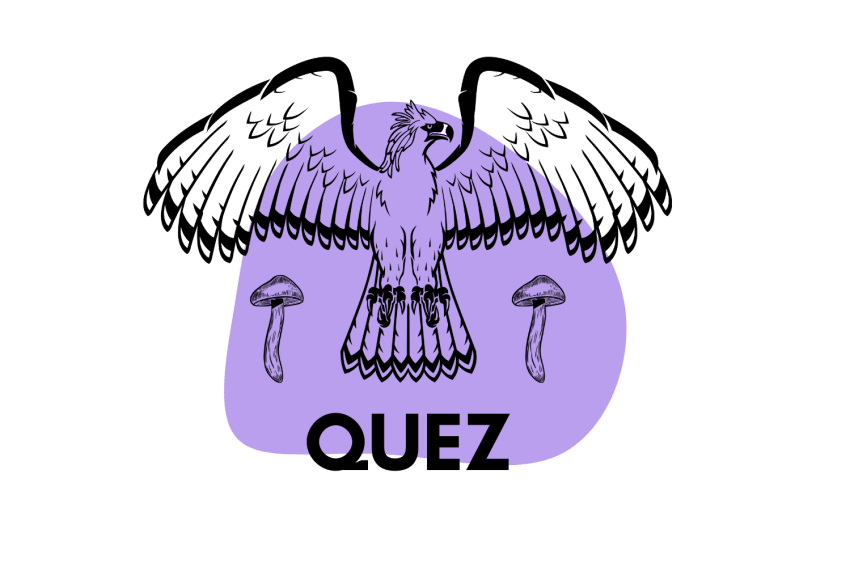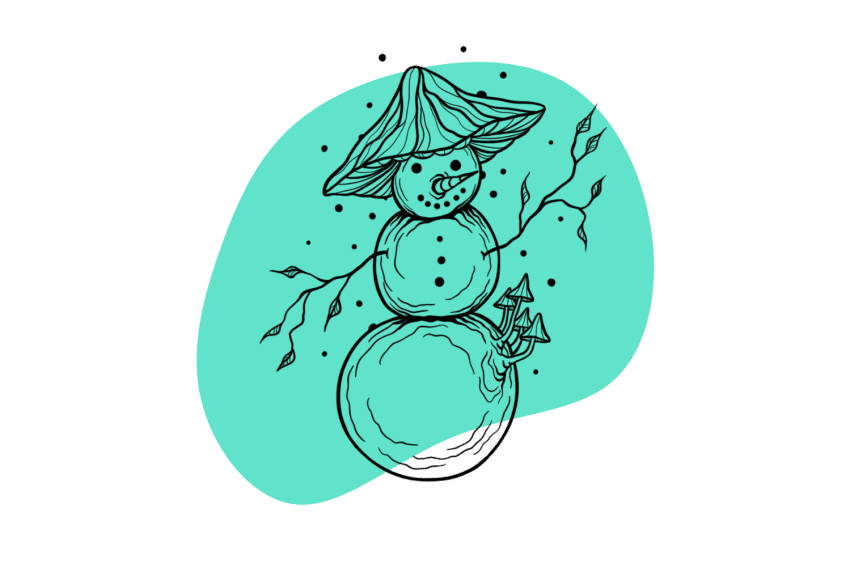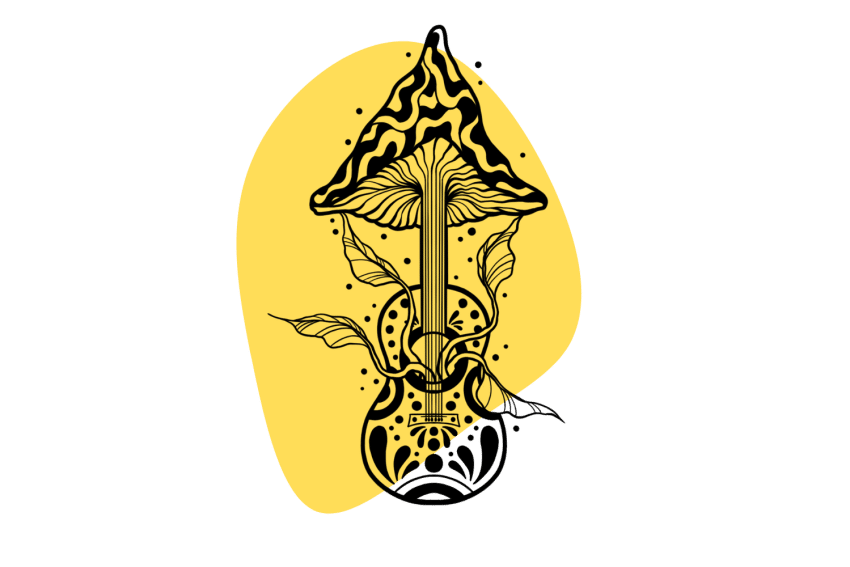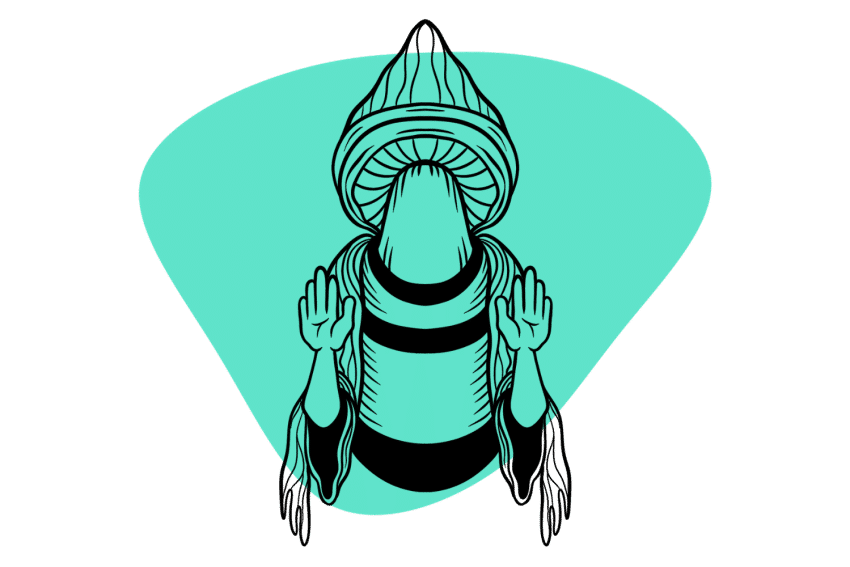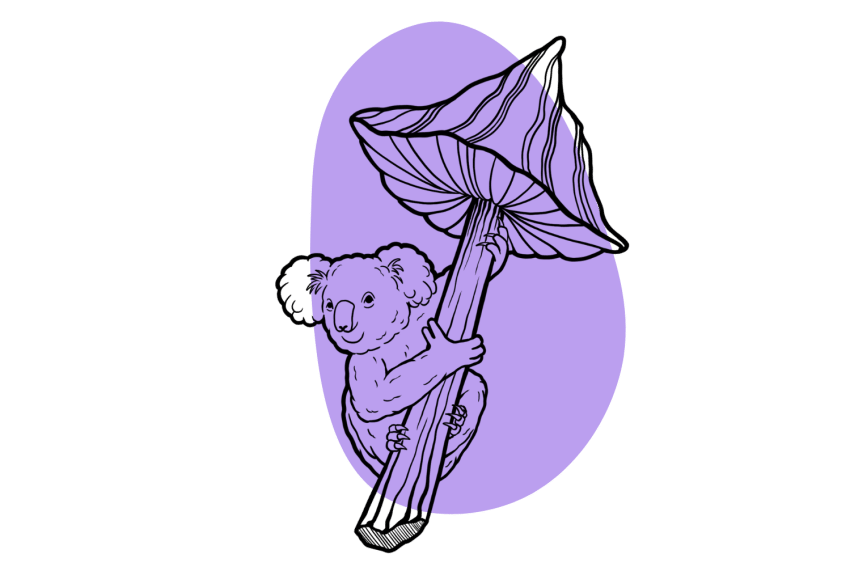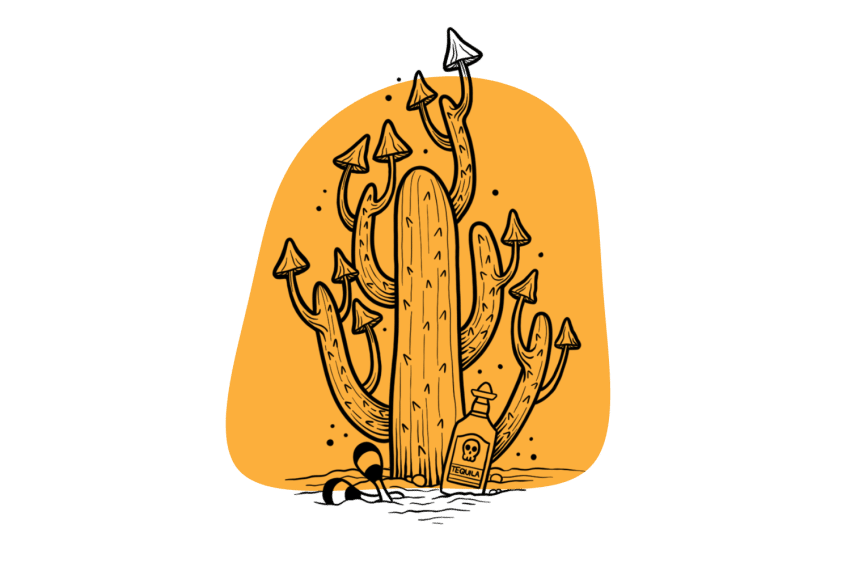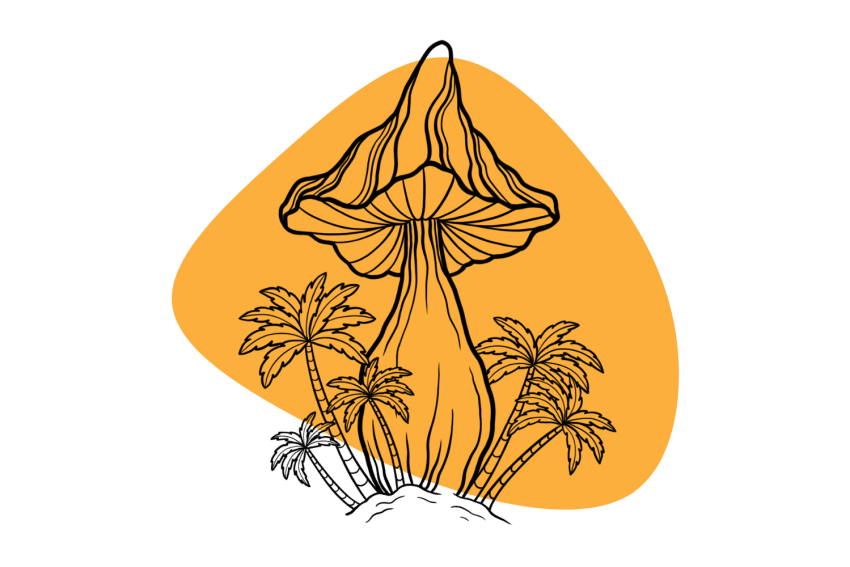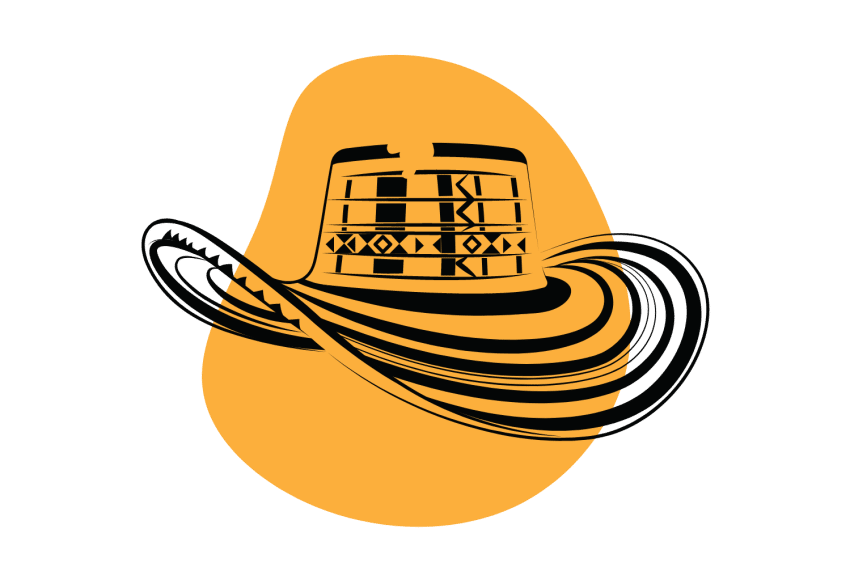The Liberty Cap Mushroom: An In-Depth Look At This Potent & Elusive Shroom
These magic mushrooms may be small, but they pack a punch.
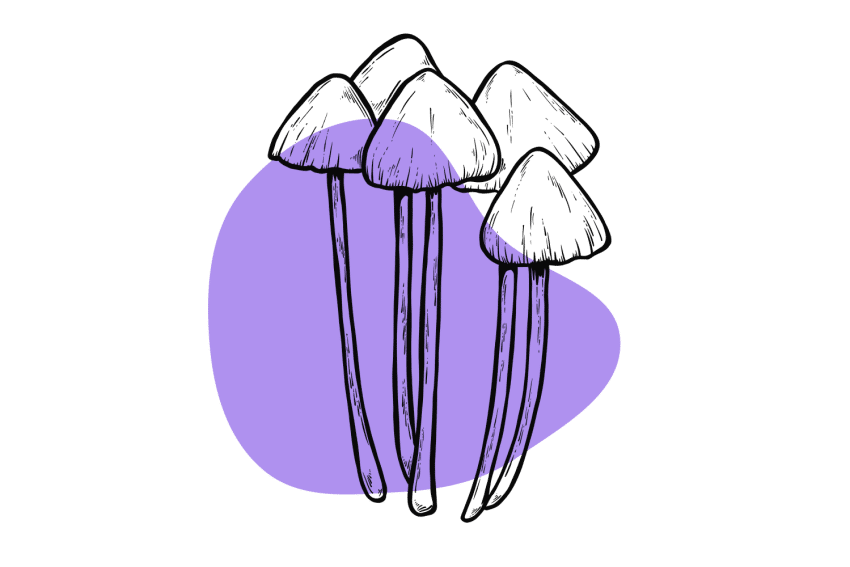
The humble Liberty Cap (Psilocybe semilanceata) is one of the planet’s most potent psilocybin-containing mushroom species. Although small and sometimes elusive, these shrooms pack a punch — producing waves of intense euphoria and vivid closed and open-eye visuals.
Psilocybe semilanceata is a seasonal mushroom that cannot be cultivated. Many people have tried to domestic this magic mushroom without success. If you want to experience the power of the Liberty Cap, you must venture into nature to find where they grow.
In this article, we’ll look into every aspect of this small but mighty mushroom — its history, potency, where the species can be found, how to identify them, and how to prepare them if you find some.
What Are Liberty Cap Mushrooms?
Psilocybe semilanceata goes by several names. The common name is, of course, the Liberty Cap, but they’re also known as Witches Hats, Wizard Caps, Snow Caps, Blue Legs, and Pixie Caps.
This Psilocybe species is one of the few psilocybin-containing mushroom species to grow in Northern Europe. They can seem elusive for several weeks in the season, and then they’re suddenly found in abundance, popping up from beneath tufts of grass in pastures and highlands everywhere.
These shrooms are small and light in color, with a distinct nipple on the top of their conical cap. They have dark brown gills and light brown, thin stems that can be surprisingly long, propelling the small cap up above the grass line in the habit in which they grow.
This mushroom has been used for centuries for its psychedelic effects. It may have been used by several different historical civilizations in Europe, including the Vikings, Romans, and Saxons.
When ingested, Liberty Caps can produce strong psychedelic effects. Few of these mushrooms are needed to experience a strong psilocybin-induced psychedelic trip.
After Psilocybe cubensis, this shroom strain is perhaps one of the most famous and well-known Psilocybe species on the planet and most definitely in Europe.
Its iconic looks have been associated with “magic mushrooms” for decades. Its image is almost as familiar as the Amanita muscaria (Fly Agaric) mushroom and has been used to portray psychedelic mushrooms worldwide.
You may not have heard of the Liberty Cap mushroom, but you’ve undoubtedly seen its iconic nipple-topped cap and thin wavy stem in artwork and film at some point during your lifetime.
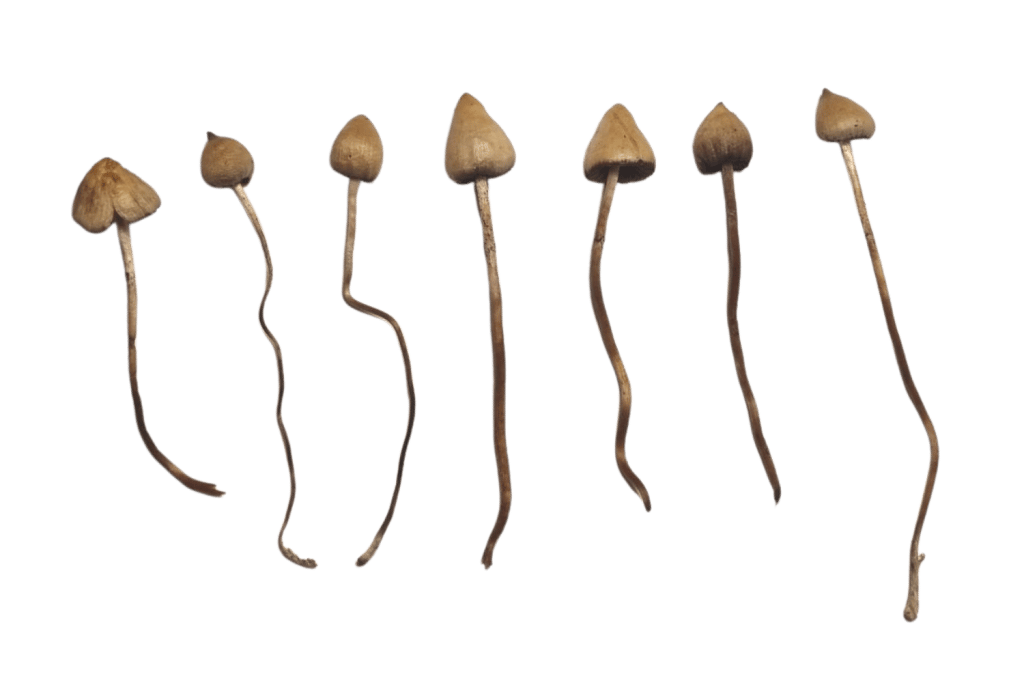
The History of Psilocybe semilanceata
Not only is the image of the Liberty Cap mushroom long-standing, but it has a deep history also. This shroom was responsible for the first recorded psilocybin-induced psychedelic trip in Europe. Let’s take a look at this fascinating mushroom’s history…
1. A Trip for Breakfast in 1799: The First Reported Psilocybin Trip
In 1799, a family began picking mushrooms in Saint James’s Green Park in London, England. Amongst the mushrooms gathered sat several Liberty Caps in wait for the unknowing family.
They prepared a meal to eat for breakfast with the mushrooms they had gathered. Shortly after eating their meal, the father and children of the family unsurprisingly started to feel strange. They had symptoms that closely resembled those produced by psilocybin.
The man and his children had dilated pupils, vertigo, and could not stop laughing — yep, they were tripping. At one point, the father reportedly believed he was dying and had been poisoned.
Later that year, after the family reported the experience, a chemist named Augustus Everard Brande wrote about the family’s experience. He published an article called “On A Poisonous Species of Agaric” in the London Medical & Physical Journal [1].
In his article, Dr. Brande noted that the likely suspect was, in fact, Psilocybe semilanceata. Further proof that the Liberty Cap was to blame for this unsuspecting family’s trip can be found in a book called “Coloured Figures of English Fungi or Mushroom” by James Sowerby (1803).
In the book, clear illustrations of the Psilocybe semilanceata species can be seen. James Sowerby also mentioned that the Liberty Cap was responsible for the events written in Brande’s 1799 article.
The brief mention of the event read, “Liberty Caps nearly proved fatal to a poor family in Piccadilly, London, who was so indiscreet as to stew a quantity (found in St. James’s Green Park) for breakfast.”
At this time, James Sowerby called the mushroom “Agaricus glutinosus,” but the illustrations clearly showed what we now call Psilocybe semilanceata.
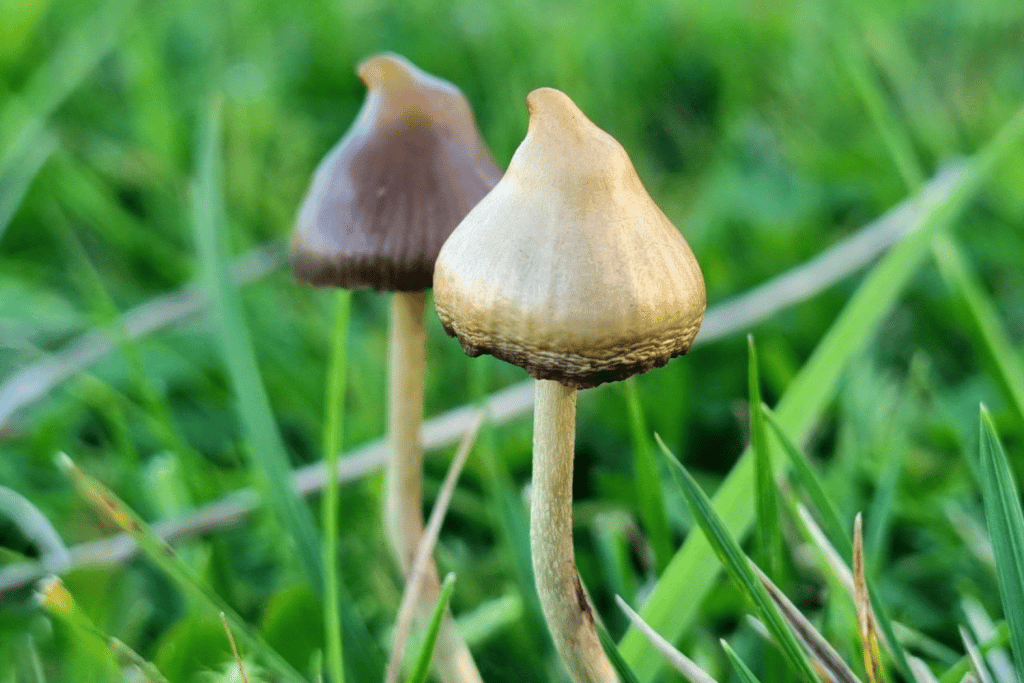
2. The History of the Common Name “Liberty Cap”
Although the name Liberty Cap is appropriate for the Psilocybe semilanceata species because of the “liberative states of mind” the shroom can induce, it may have deeper origins.
The Liberty Cap mushroom inherited its name from the Phrygian cap (also known as the Liberty Cap).
The late Roman Empire used a felted cap called a “pileus” (Latin for cap). The pileus was given to slaves that had been offered freedom.
This cap was used as a symbol of liberty and allowed freed slaves to vote. Moving forward in time, what was the “pileus” was later used in the French Revolution. This is where the name “Phrygian cap” came from.
The Phrygian cap would be placed on top of “Liberty poles” in the 18th century as a symbol of freedom and liberty. These capped poles of liberty and freedom closely resembled Psilocybe semilanceata.
In 1812, the English poets Robert Southey and Samuel Taylor Coleridge made the first connection between the caps of liberty and what we now know as the Liberty Cap mushroom in a book called Omniana. This may have been where the name originally stemmed from.
In the book, a passage reads, “There is a common fungus, which so exactly represents the pole and cap of liberty, that it seems offered by nature herself as the appropriate emblem of Gallic republicanism — mushroom patriots, with a mushroom cap of liberty.”
A later mushroom guidebook called “Edible and Poisonous Mushrooms,” written in 1894 by Mordecai Cooke, refers to Psilocybe semilanceata by the name “Cap of Liberty” — and so, the name was born.
Somewhere along the line, people would change from calling this species Cap of Liberty and instead start calling it the Liberty Cap.
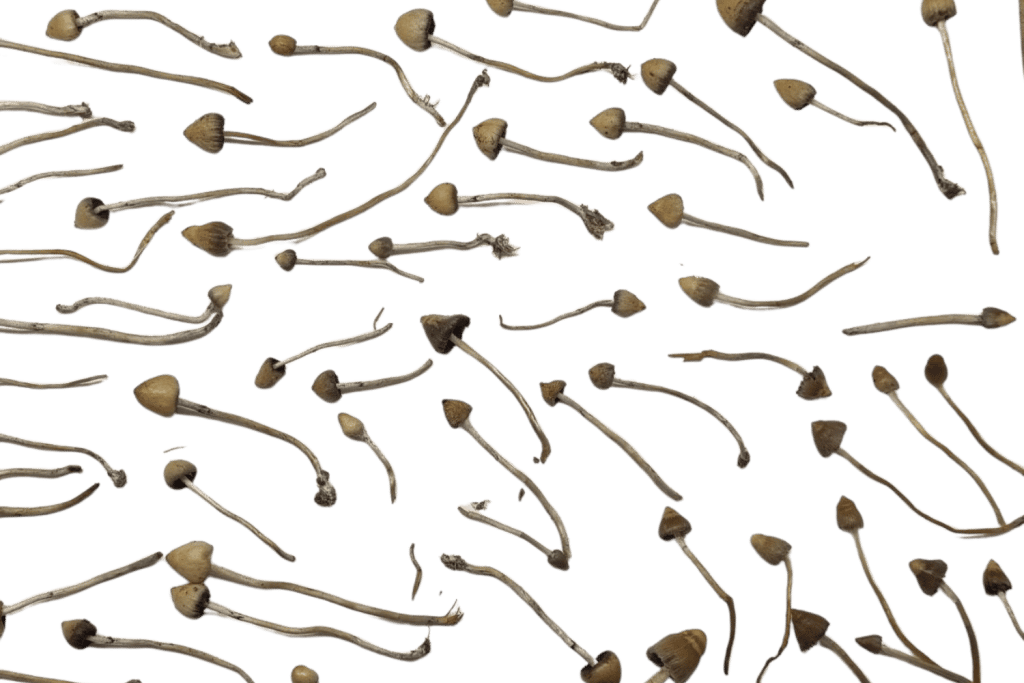
3. Liberty Cap Use In the 1960s
During the 1960s, people realized the potential psychedelic effects of the Liberty Cap mushroom. Of course, its hallucinogenic qualities were known before this, but until the 60s, the wider public didn’t know about this small psychedelic field mushroom.
In 1963, the famous chemist Albert Hofmann (the man responsible for synthesizing LSD) and mycologist Roger Heim documented the presence of Psilocybe semilanceata in Europe. The two started studying the species based on the information they found in James Sowerby’s 1803 book “Coloured Figures of English Fungi or Mushroom” (mentioned earlier).
Hofmann and Heim worked with Gordon Wasson (a famous ethnomycologist) to find and identify the Liberty Cap mushroom. Of course, they discovered that the active ingredient was indeed psilocybin — the same compound found in Maria Sabina’s magic mushrooms from Oaxaca, Mexico.
Psilocybin was the subject of Wasson’s 1958 article in LIFE Magazine titled “Seeking the Magic Mushroom,” where he documented his travels to experience a mushroom ceremony with the curandera Maria Sabina.
People from all over the world were traveling to visit Maria Sabina to have a mystical experience with psilocybin. However, once Albert Hofmann and Roger Heim reported the abundant presence of psilocybin-containing mushrooms in Europe, Canada, and the US, people started to realize that they didn’t need to travel to Mexico to find psilocybin.
This knowledge led hippies, university students, and other mushroom-seekers to head out into the grasslands of the United Kingdom, Europe, Canada, and the United States in search of the humble Liberty Cap.
Young people everywhere were looking for these natural spiritual treats, and when they started to find them, the shroom really started to grow in popularity.
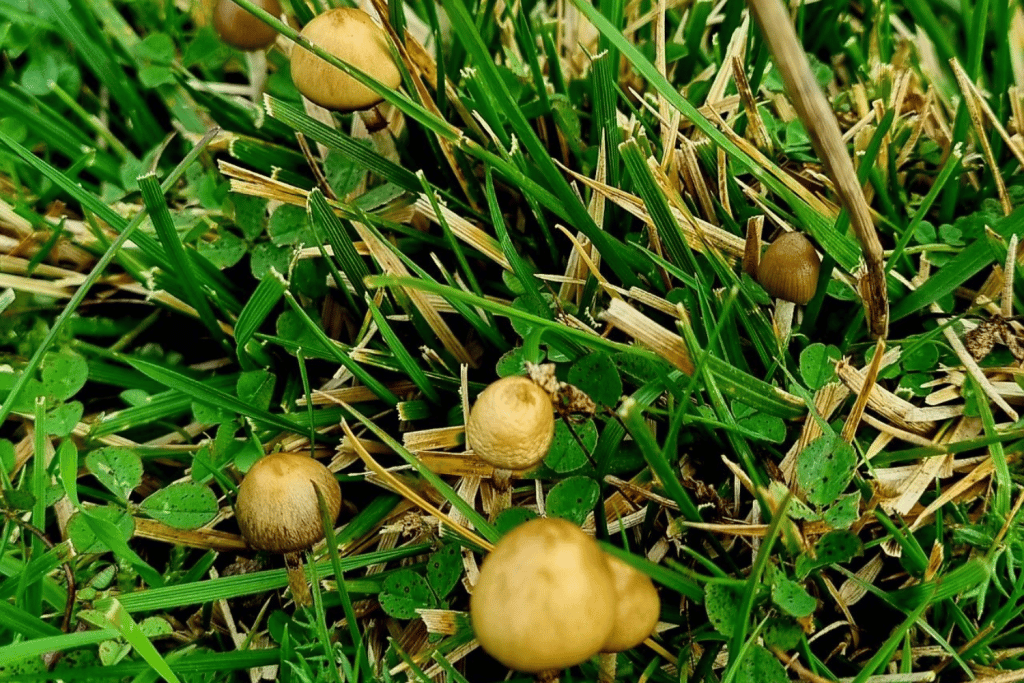
The Potency & Effects of the Liberty Cap
Psilocybe semilanceata is highly potent. The psychedelic compound within these mushrooms is, of course, psilocybin. Although extremely small compared to other Psilocybe species, Liberty Caps are a species of mushrooms that should be treated with great respect.
They’re far more potent than your average Psilocybe cubensis mushroom, and relatively minute amounts can produce strong psychedelic effects. By weight, Liberty Cap mushrooms are much more potent than any cubensis shroom — even strains such as Penis Envy and Tidal Wave.
The problem with Psilocybe semilanceata is their tiny size. When you dry these shrooms, they shrivel to a minuscule size, meaning you need to collect a reasonable amount for an intense trip. This puts many people off. However, it’s possible to find a lot at one time, providing you know where to look. The effort is worth it since the psychedelic effects can be far more intense than Psilocybe cubensis.
This species has been studied several times, and there’s quite a bit of data on psilocybin levels. Different samples have provided various results ranging from 0.2 to 2.37% psilocybin in dried mushrooms. The higher end of this scale puts this species above cubensis strains such as Tidal Wave in terms of potency.
Tjakko Stijve and Thom Kuper analyzed a single Liberty Cap specimen in 1985 [2]. They discovered a concentration of psilocybin at 1.7% (dry weight).
In a paper titled “Occurrence and Use of Hallucinogenic Mushrooms Containing Psilocybin Alkaloids,” the potency tests of several samples of Psilocybe semilanceata are displayed. Samples from Finland, Germany, Norway, Sweden, Switzerland, Serbia, the Czech Republic, the United Kingdom, Canada, and the United States were tested. The results showed that this species has a rough average of 1.0% psilocybin in dry weight [3].
This average was taken from a range of 0.20 to 2.37% — showing how variable the potency can be when it comes to the Liberty Cap species. Most reports suggest a functional range of around 1.7–2% of total tryptamines.
Surprisingly, Liberty Caps seem more potent the further north you go. Test specimens from Norway, Sweden, and Finland show higher psilocybin levels than those from further south in Europe.
The same species can be picked in Northern Sweden as in Southern England. Remarkably, many people report that Psilocybe semilanceata shrooms picked in Northern Europe are far more potent than those picked in the south.
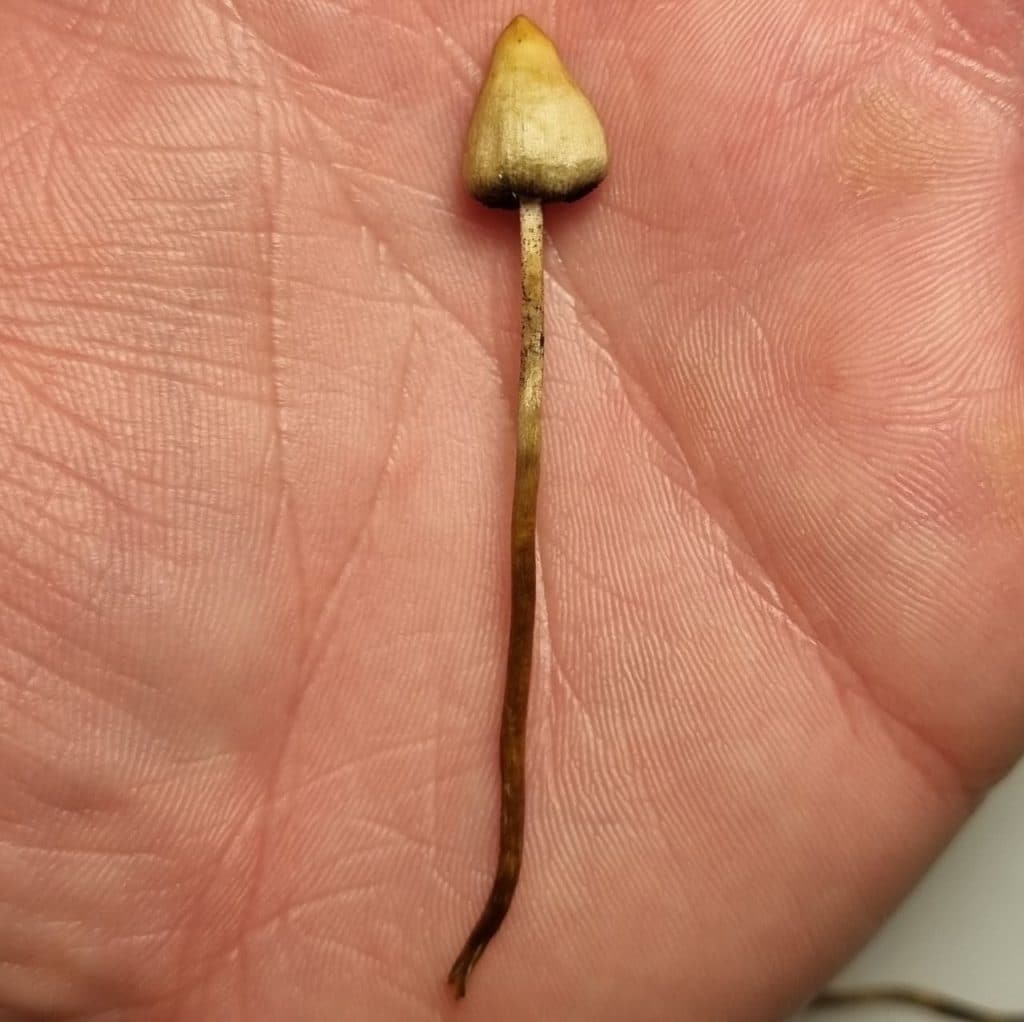
What’s the Dose of Psilocybe semilanceata Mushrooms?
Because Liberty Caps can’t be cultivated in a controlled environment, their potency can vary drastically. They must be harvested from nature.
With this in mind, figuring out dosages can be difficult. The potency can drastically change from one shroom to the next, even if you picked them at the same time from the same field. The best way to figure out dosages is to gauge it yourself.
Start with a small amount (10 to 15 medium-sized caps) and gradually work up the dose until you experience the desired effects.
If you’ve tried magic mushrooms of the Psilocybe cubensis variety, you’re in good stead. The effects are pretty similar, and dosages aren’t massively different. However, you won’t need to consume as high a dose in weight of Liberty Caps as you would with a typical cubensis strain such as Golden Teachers or Koh Samui.
A good point of reference for gauging doses is that around 1–1.5 grams of dried Psilocybe semilanceata are about the same potency-wise as 2–2.5 grams of dried Psilocybe cubensis.
Of course, this can change dramatically depending on the potency of the Liberty Caps, the potency of previous cubensis shrooms you’ve tried, and how sensitive to psilocybin you as a person are.
My advice is to take it slow and easy. Eating more is always possible, but you can’t eat less.
As mentioned, start with a low dose and work it up gradually. There’s no rush in the psychedelic world. Even if you want to re-dose when you’re tripping, that’s fine. Just make sure to do it in small increments and wait a minimum of an hour and a half after your first dose.
Magic Mushroom Dosage Calculator
Double-check the potency of the DXM you’re using, and look for the addition of other compounds such as acetaminophen which can cause severe liver-toxic side-effects at this dose.
Can You Microdose Liberty Cap Mushrooms?
Although surprisingly potent, these small shrooms are excellent for microdosing.
A microdose is defined as a sub-perceptual dose of a psychoactive substance. This means the microdose you take shouldn’t get you high. You might feel a mild euphoric effect, a mild body sensation, and mild “sparkliness” in the visual sphere — but you won’t feel the hallucinogenic effects.
Microdosing is often used for improving mood, optimizing focus, and improving the creative thought process.
There’s no right or wrong way to microdose Liberty Caps — but most people take around 50–100 milligrams worth of dried mushrooms. Most people take a dose in the morning every 3 days.
Remember, if you choose to microdose magic mushrooms of any kind, make sure you do so in a controlled environment the first few times to see how your body reacts.
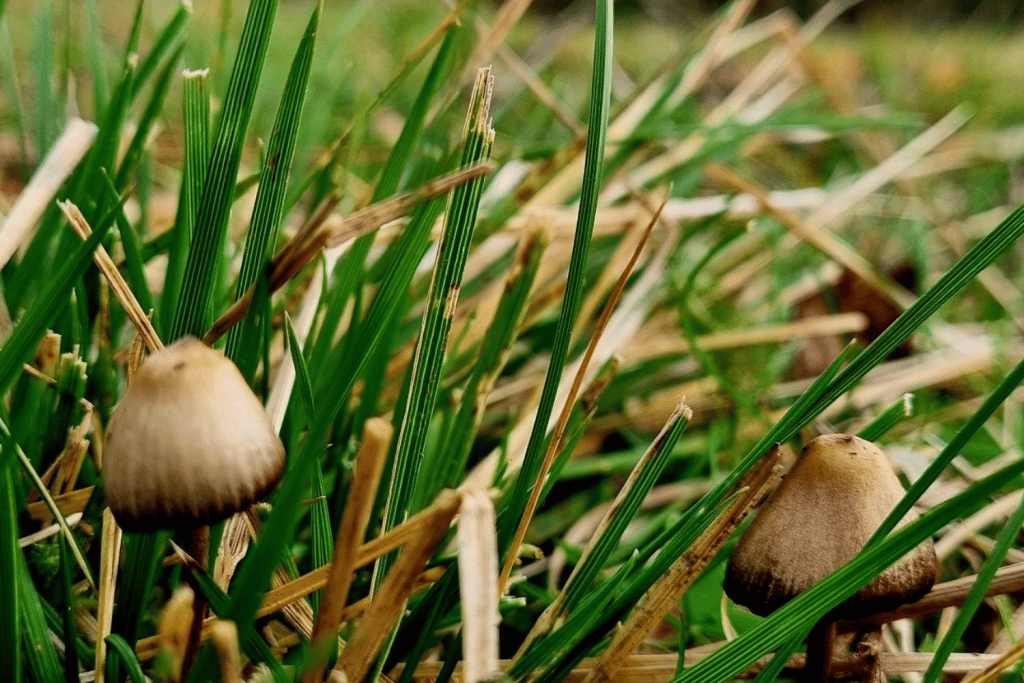
Where Can You Find Liberty Caps?
Psilocybe semilanceata can be found growing naturally in autumn time. If the conditions permit, they may also be found during early spring in some areas. They grow in grassland areas grazed or disturbed by human development.
Contrary to what many people say, this shroom doesn’t grow in livestock manure as Psilocybe cubensis often does. However, it’s regularly found growing in fields that cattle or sheep have grazed — this may be where the misconception came from.
The enriched pastures where livestock have been grazing seem to create an ideal habitat for this psychedelic fungi. The fact that the grass is also shorter in grazed pastures helps spot the tiny caps. You’ll often find liberty caps growing in clusters next to slightly longer tufts of grass.
When you find one, others won’t be far away. If you find one growing next to a grassy tuft, split the blades of grass — you may find more hiding underneath. It’s also a good idea to stop when you find one and scan the area around you. Nine times out of ten, you’ll spot another group in the vicinity.
It’s essential that you flick the caps of every mushroom you pick to encourage sporulation before you extract the fungi. This will ensure that the shrooms return to the same location year after year. It’s also good practice to leave the smaller caps growing until they’re mature rather than picking the entire colony.
If you look after the Liberty Cap colonies, they’ll look after you. If you practice what I said above, you can often return every couple of days during the season to collect more.
Suggested Reading: Where Do Shrooms Grow? How to Find Magic Mushrooms In the Wild
What Countries Do Liberty Caps Grow In?
Liberty Caps can be found growing in several different countries. They are highly prevalent across Europe and the United Kingdom but can also be found in North America and Canada. They prefer a cooler climate and are much more prominent in Northern regions. However, they can often be found in the south, providing the conditions are suitable for growth.
This species is native to Europe. Although it can be found growing in parts of North America and Canada, it’s unlikely that it grew naturally there before the first European settlers. It’s believed that this species was brought over when the European settlers and their agriculture became established in the countries.
Spores of Psilocybe semilanceata likely came over with livestock on their hoofs, fur, and fodder.
Before the European settlers, this mushroom likely didn’t grow in Canada or the United States. However, now it can be found in many areas, and if you know where to look, big harvests can be had.
Here’s a list of countries where Psilocybe semilanceata (Liberty Cap) mushrooms grow:
- Albania
- Austria
- Belgium
- Bulgaria
- Canada (especially prominent in British Columbia)
- Croatia
- Czech Republic
- Denmark
- England
- Finland
- France
- Germany
- Holland
- Hungary
- Ireland
- Italy
- Jersey
- Lithuania
- Luxembourg
- Norway
- Poland
- Portugal
- Romania
- Russia
- Scotland
- Serbia
- Slovakia
- Slovenia
- Spain
- Sweden
- Switzerland
- The Isle of Man
- The United States of America (mainly the Northern States)
- Wales
There may well be more countries that aren’t on this list where Psilocybe semilanceata grow.
How To Identify Liberty Cap Mushrooms
This is one of my, and many others, favorite mushroom species to observe. They look amazing and can vary significantly from one another, giving every cap its own personality in a way.
Identifying Liberty Caps is relatively easy. Once you find one, you’ll never mistake another species for it again. However, when you first start searching for this shroom, it’s easy to misidentify. Luckily, some pretty fool-proof ways to identify Psilocybe semilanceata will ensure you don’t pluck the wrong cap.
Liberty Cap mushrooms can be found in areas of grassland. Pastures grazed by livestock or horses can be fantastic areas to look at. Once you’ve found a suitable habitat, you’ll have to get down relatively low, at least at first, until you get an eye for spotting small mushrooms.
Of course, you need to know what to look for, so buying an identification guide is wise. If possible, you should also head out with someone that knows what they’re looking for. This way, you can be sure that you’ve picked the right shroom — this will put your mind at ease and allow your identification skills to grow more quickly.
Liberty Cap mushrooms can all look surprisingly different. The cap shape and color of the shrooms can vary from shroom to shroom. However, there are a unique set of characteristics that you can rely on for identification.
A Liberty Cap that isn’t carrying much water will have a creamy-white cap with a darker ring around the base of the cap. A Liberty Cap holding water will look far darker in color and take on a sticky residue. When wet, the caps are brown and almost slimy. You’ll still see a darker ring around the circumference of the cap’s base, but it’ll be less apparent to the eye.
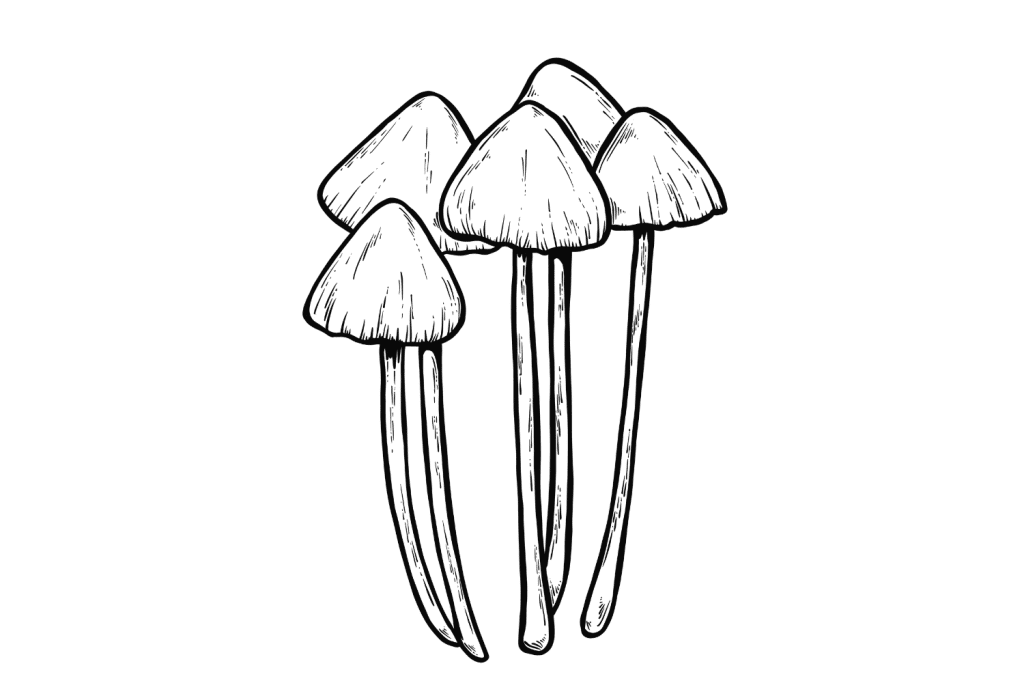
The caps are primarily conical in shape. However, they can vary quite a lot. Some caps can be slender and long, others can be bell-shaped, some can be very pointy, and some quite rounded. The one factor that stays the same from shroom to shroom is the distinct nipple on the top of the cap. However, this can become less prominent in older mushrooms that have sporulated.
If a shroom you think is a Liberty Cap doesn’t have this nipple, don’t pick it.
The gills of Psilocybe semilanceata are dark brown. Younger shrooms can have greyer-looking gills, and older shrooms can have gills that look almost black.
The stems of the Liberty Cap are thin and relatively long for the size of the cap. They can be pin-straight or wavy. They are a light brown color and darker at the base than at the top. When picked and bruised, the stem will often take on a bluish hue five to ten minutes after — a telltale sign that the shrooms contain psilocybin.
If you’ve picked a mushroom that you believe is a Liberty Cap but are still unsure of its true identity, you can take a spore print. The spores will show up as purple-brown.
Remember, if you’re ever in doubt, do not eat the mushroom. Until you’re 100% sure you’ve picked the correct fungi, you should never consume it.
How To Prepare & Store Psilocybe semilanceata
The preparation and storage of Liberty Caps is an easy task.
The best way to store these Liberty Caps mushrooms long-term is to dry them. Luckily, you don’t need a dehydrator for this shroom, and it’s possible to produce bone-dry caps in less than two days.
All you need to do is clean up your shrooms with a small dry paintbrush to remove any dirt or bugs and lay them out on a piece of paper away from sunlight. It’s essential that they don’t touch each other and are left in a well-circulated area that isn’t too warm.
Depending on the size of the caps, they’ll be dry within 24 to 48 hours.
You’ll know they’re dry when they’ve shrunk to under half their size and snap cleanly when bent. The cap of the shroom will also crunch when squished between your fingertips. These shrooms can then be stored in jars with a small food-safe bag of silica gel (or another safe desiccant) to avoid molding.
There are several ways to use dried mushrooms in the future. Of course, you can eat them whole. Alternatively, you can create capsules, tea, and a range of other things.
If you want to learn more, read our article about drying and storing magic mushrooms and some ways these small caps can be prepared for consumption.
Are Liberty Cap Mushrooms Legal?
These shrooms grow in the wild across Europe and parts of Canada and the United States, but getting caught with them is a criminal offense. In many places, psilocybin is classified alongside substances such as cocaine and heroin, which means possessing them carries the same penalties.
Since psilocybin is the active psychoactive compound in the Liberty Cap mushroom, they are illegal to possess, consume, and sell.
In most places, this mushroom is also illegal to pick. In places such as the United Kingdom, simply plucking the fungus from the ground is an illegal act, and since the shroom is considered a Class A substance (Schedule 1 for those in the United States), the act carries some hefty penalties.
This isn’t the case in other European countries, but it’s illegal to pick with the intent of consumption in most places. This essentially means that you can pick them to observe but not eat. As soon as you leave the area in which they are growing with a bag full of them, this is when they essentially become an illegal drug.
That said, spores are legal in most places. Once they start to grow and contain psilocybin, they become illegal. So you can purchase spores and grow your own mushrooms, though this part is illegal.

Summary: Psilocybe semilanceata (The Liberty Cap Mushroom)
Psilocybe semilanceata, more commonly known as the Liberty Cap, is an intriguing shroom that contains the psychedelic compound psilocybin. It’s an amazing-looking fungus that can induce some intense psychedelic effects.
After Psilocybe cubensis, the Psilocybe semilanceata species is the most well-known and prevalent magic mushroom on the planet. Its iconic shape and potent effects make it popular among shroom users that are in the know. Data suggests that this species could contain higher levels of psilocybin than any strain of cubensis.
This species can be challenging to find, and collecting a good amount in weight can be difficult due to their minuscule size. However, if you’re passionate and determined enough to get out into nature to search for this mystic mushroom, you’ll be greatly rewarded.
The Liberty Cap can’t be cultivated; at least a method for cultivation that’s successful hasn’t been developed yet. This factor makes the shroom all the more intriguing. Psilocybe semilanceata is a true magical fruit of nature that has to be earned rather than bought.
References
- Brande E, London Medical and Physical Journal, 1799; Xl: 41–44
- Stijve, T., & Kuyper, T. W. (1985). Occurrence of psilocybin in various higher fungi from several European countries. Planta medica, 51(05), 385-387.
- Andersson, C., Kristinsson, J., & Gry, J. (2009). Occurrence and use of hallucinogenic mushrooms containing psilocybin alkaloids. Nordic Council of Ministers.

